Four hospitality GMs share their strategies to return bookings to pre-pandemic levels
The leadership teams of Hong Kong's top hotels are analysing the data and informally collaborating, as a new demographic of luxury travellers looks for more than just the classic dining and shopping experience.
Upbeat, optimistic and creative – that’s the mood in Hong Kong’s hospitality sector, according to the general managers (GMs) of some of the city’s top luxury hotels. Crisis mode is over, they say, and Asia’s favourite business hub is primed for a strong second half of the decade with new openings and new infrastructure in the pipeline. There’s still plenty of work to do to win back long-haul travellers and nudge room rates back to where they were before the coronavirus pandemic but, as ever in Hong Kong, the private sector is leading from the front. Hotel owners and bosses are putting competition aside and working together to co-ordinate marketing efforts and shift the narrative. Monocle took the opportunity to join one of these friendly get-togethers for a conversation about technology and talent at one of the best tables in the city.
Our panel:
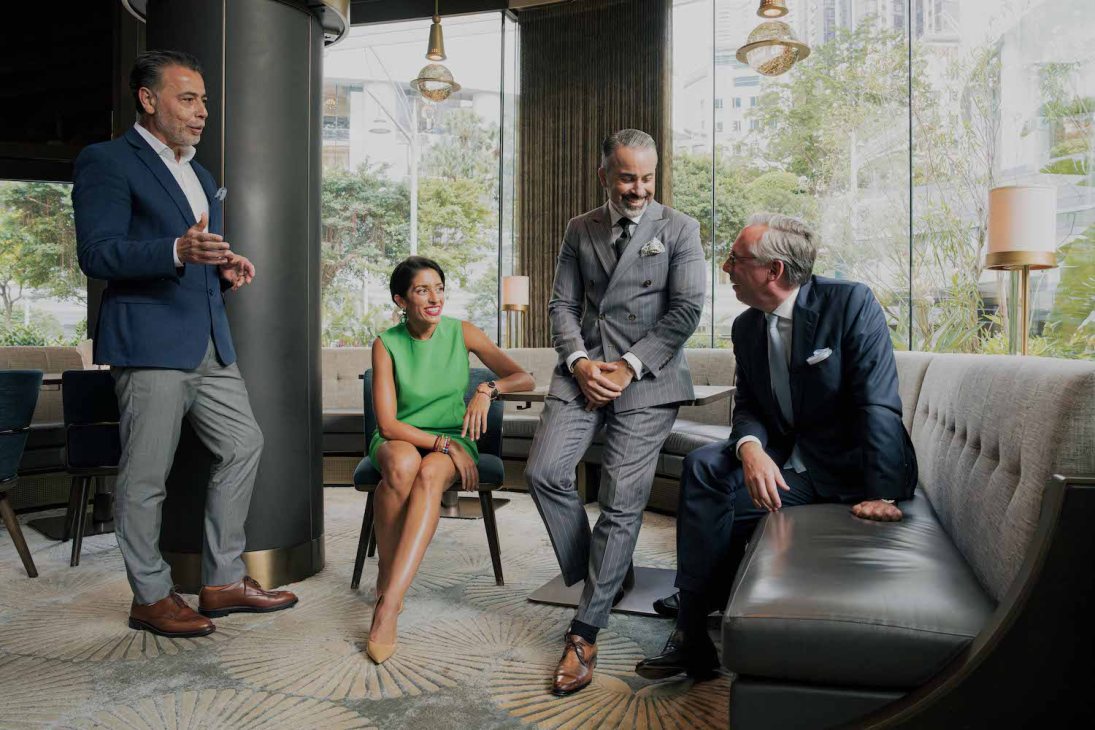
The Old World standard bearer
Christian Poda, Four Seasons
Hospitality runs in Poda’s family, with three generations working in hotels and restaurants. The Berliner cut his teeth in his hometown, learning the ropes at The Kempinski Bristol Hotel and Palace Hotel before beginning a long career at the Four Seasons. Poda has since spent much of his career in Asia, returning to Hong Kong in 2022 to lead the Four Seasons, the venue of the UBS Asian Investment Conference 2025.
The globetrotter
Michel Chertouh, Regent
Chertouh’s almost 40-year career at Intercontinental Hotels & Resorts has taken him around the world, with postings in Paris, London, Rio de Janeiro, Miami and Tokyo. A graduate of the École Hôtelière de Paris, the dual French and Brazilian citizen landed in Hong Kong in 2021 to become the general manager of the new-look Regent. The 497-room hotel on Victoria Harbour reopened in 2023 after a three-year overhaul by Chi Wing Lo.
The hometown host
Kristina Snaith-Lense, Upper House
Born in New York and raised in Hong Kong, Snaith-Lense has spent most of her 20-year career in hospitality at The Upper House, the André Fu-designed property in Swire Hotels’ House Collective. Before joining as director of guest experience in 2012, she spent two years at The Landmark Mandarin Oriental in Hong Kong, her first managerial role after graduating from Switzerland’s École Hôtelière de Lausanne.
The high flyer
Anas Bencheqroun, Ritz-Carlton and W
Bencheqroun currently oversees two neighbouring hotels in West Kowloon for Marriott, including the world’s highest, the 312-key Ritz-Carlton on the top floors of the icc, Hong Kong’s tallest skyscraper. Bencheqroun began his 20-plus-year career in hospitality at The Four Seasons in Paris before joining Marriott in 2013. He returned to Hong Kong’s loftiest lodgings in 2021 as manager before landing the top job and taking over responsibility for the W.
This is a convivial after-work drink, but aren’t you supposed to be competitors?
Kristina Snaith-Lense: We see each other most frequently at international trade shows. At ILTM in Cannes last December we talked about the need to promote Hong Kong as a group. When we returned, we began organising monthly lunches to discuss how we’re selling the city to the international market.
Christian Poda: We’re competitors but we all love Hong Kong. So we want it to do well. For a while the city had a very bad narrative but it’s much better this year.
Michel Chertouh: Overcoming that narrative has been a sacred journey, not just for the government and the tourism board but also for us in the hotel industry.
What are occupancy rates like?
Anas Bencheqroun: We are all at above 70 per cent. The first quarter was quite strong, markedly better than last year.
KSL: With the Kai Tak stadium now open, we finally have a world-class venue. Having Coldplay as the first international act there was huge. But it’s crucial to keep that momentum going.
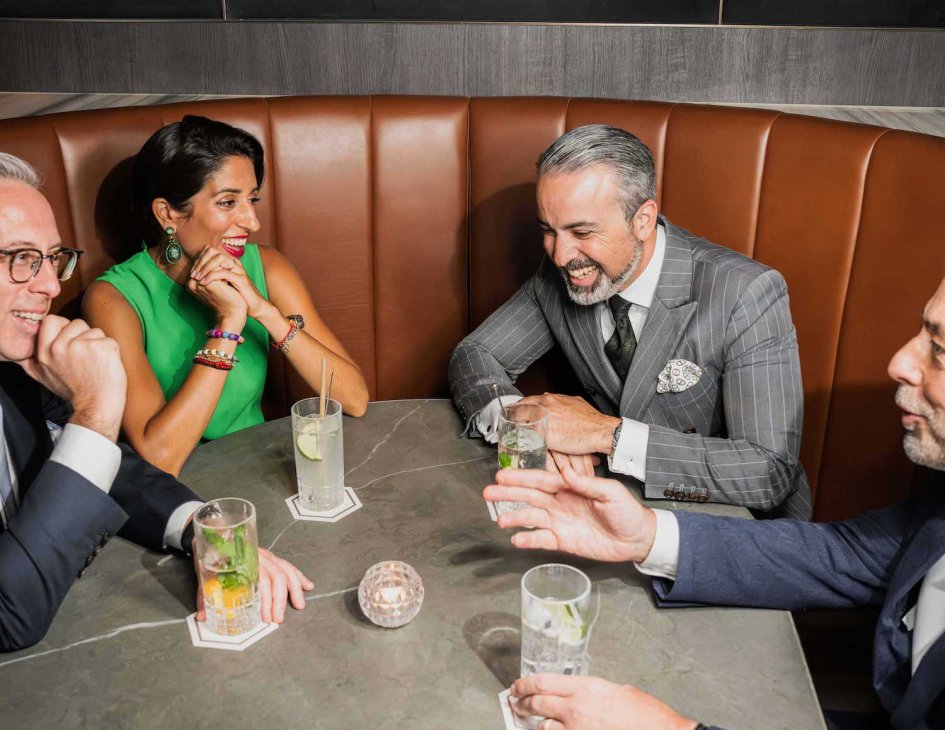
Who hasn’t come back yet?
KSL: The US market hasn’t fully recovered. But new ones have emerged, such as the Middle East and Russia.
AB: India is strong for us.
MC: Southeast Asia is back but Europe and Japan are still a challenge.
What more could Hong Kong be doing?
MC: It’s all about telling Hong Kong’s story from fresh angles and new perspectives. It’s less about infrastructure and more about branding. That’s where the private sector comes in. We can’t rely solely on the government. It’s up to us to reimagine the city and present it in a compelling light.
Kristina, your guests can now find a dry bag in their room’s closet, alongside the usual shopping bag and umbrella. What does that say about the type of luxury traveller coming to Hong Kong?
KSL: We’re seeing more people wanting to explore the hiking trails and the outlying islands. We need to be showcasing experiences that go beyond just dining and shopping.
MC: We are noticing a shift in demographics. There’s a younger clientele coming in from mainland China, whereas before the pandemic, the crowd was older. With that shift, you see changes in behaviour too.
Could you give us an example?
MC: Drinking habits have shifted quite noticeably. People are opting for quality over quantity. There’s also a broader trend away from alcohol.
CP: We see the biggest shift in our Michelin-starred restaurants. Guests are still eager to dine there but their preferences have evolved. Instead of a three-hour tasting menu, they prefer a 90-minute meal and they want to eat less.
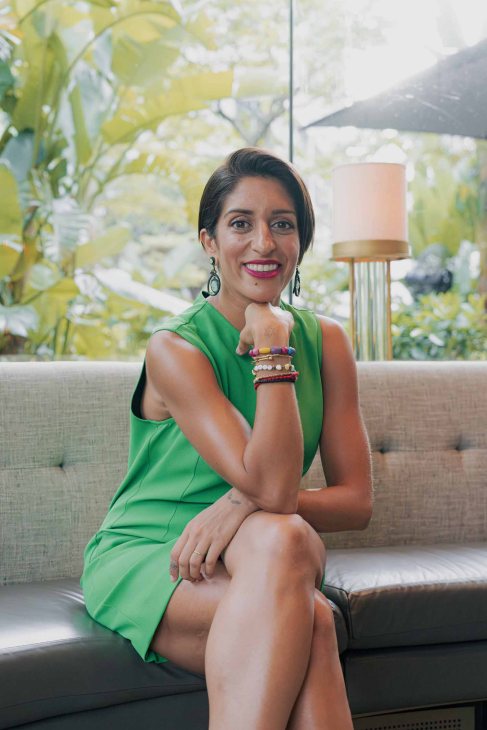
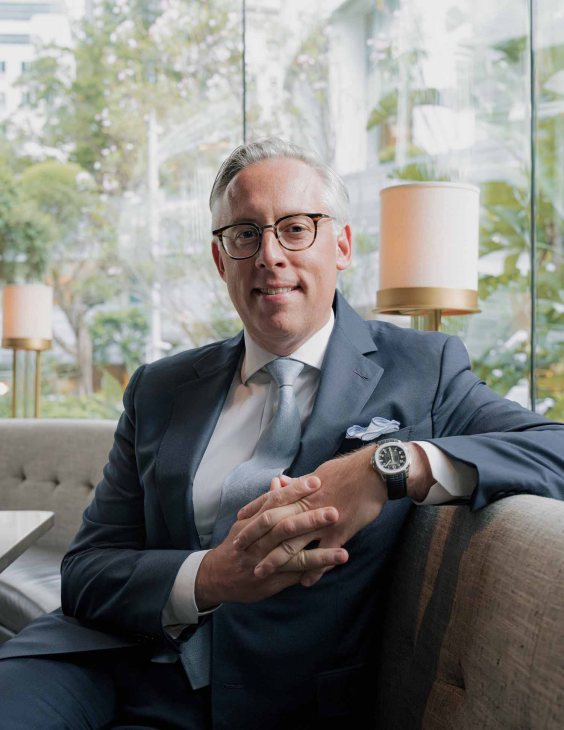
What are your guests telling you about technology? Are they saying that they want more – or that they want a break?
AB: They want more but also to be given a choice about it. Luxury is all about having the choice, so we need to provide the technology for people to use.
MC: And make it simple.
CP: Sometimes give more, sometimes give less. It really depends on the occasion.
How is your role as GM changing?
CP: Today we run serious, complex businesses. I oversee 900 employees and a multi-million dollar-per-year operation. That marks a real shift from the past. The romantic notion of simply being a hotelier is increasingly giving way to the demands of a CEO.
How much face time do you tend to have with guests?
CP: Probably about an hour a day – not as much as before because there’s a lot that can’t be managed from the lobby.
AB: I shouldn’t be spending more time at the desk than in the lobby but the balance has shifted. GMs from 10 to 15 years ago didn’t have the data that we have today. Whether it’s guest satisfaction or KPIs, the data helps us to manage our businesses better but it’s also taking us away from the operation.
MC: But it’s still an industry that requires you to give a lot of yourself and to invest your heart into it. I believe that you need to spend time with the guests and we’re not spending enough.
Hong Kong’s most recent big openings were the Rosewood in 2019 and the Regent in 2023. What do you think will be next?
MC: When you compare Hong Kong pre- and post-pandemic, the evolution is remarkable. With all the launches this decade – West Kowloon Cultural District, the stadium, the airport expansion – the city has never been static. It’s incredible to see that, against all the odds, Hong Kong has continued to invest and progress, and evolve to where it is today.
KSL: Kimpton is opening later this year and Andaz is opening in the next few years.
MC: That lifestyle element was probably missing from Hong Kong.
AB: Yeah, we only had the W. Now I will have some competition.
KSL: Aman is also looking for a site.
AB: Bulgari too. Everybody is looking.
CP: Think of the quality of hotels here, at a price point that is, frankly, much lower than in pretty much any other key gateway city. Compared to London, Paris and New York, Hong Kong is a bargain.
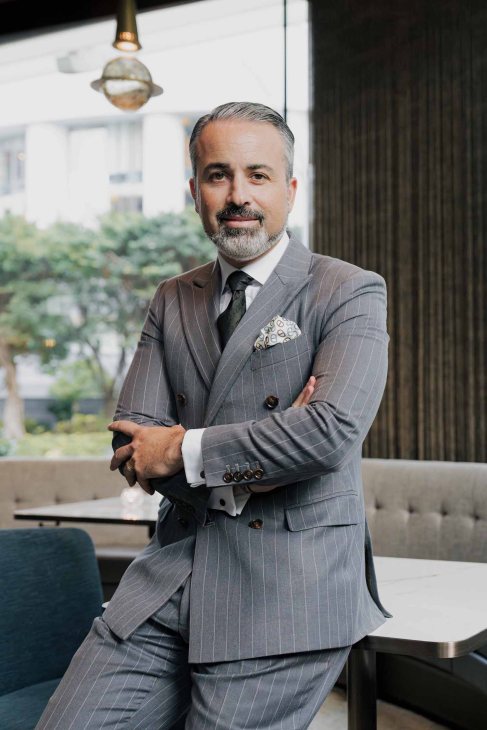
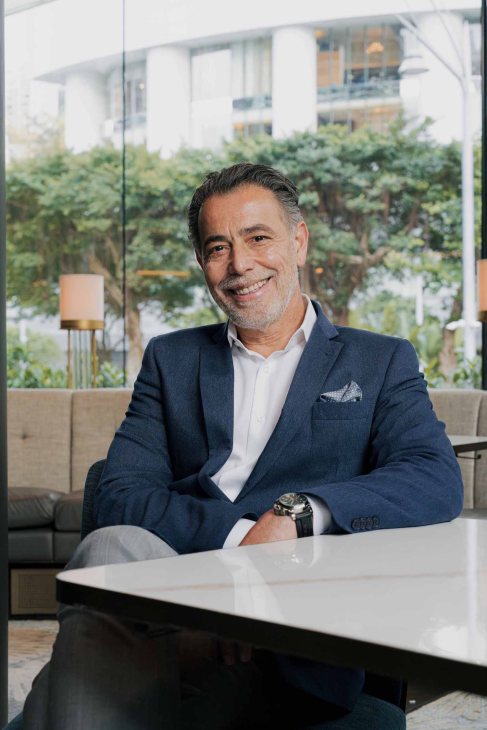
Which city is Hong Kong’s biggest competitor in Asia these days: Singapore or Shenzhen?
KSL: Shenzhen. We have seen it, especially over the Easter break this year when about two million people left Hong Kong. We know that a huge number went to the Greater Bay Area.
AB: Neither. It’s Tokyo. Because a large part of our business is coming from mainland China and their spending in Tokyo has tripled. That increased spending would usually have come to Hong Kong.
MC: Tokyo and also Bangkok, which has evolved as a dining destination. Hospitality there has improved too.
CP: If you want to do business with China you have to be in Hong Kong, not Singapore or Tokyo. Shenzhen is so cool but that’s good for Hong Kong. I know it’s a competition, in a way, but Hong Kong has a prime role to play in the Greater Bay Area. We just need to figure out how to coexist. Short-term pain, long-term gain.
AB: With more synergies between the cities around us, such as Shenzhen and Guangzhou, we could easily become the Silicon Valley of Asia. Business travel is still lagging but we see the demand coming back. And with what’s happening in the world right now, Asia will definitely be a destination for new businesses.
What’s your single biggest challenge – or perhaps headache – for the second half of the year?
AB: Finding and holding onto people. The numbers in hospitality education have dropped by 30 per cent compared to before the pandemic. And there is a good 20 per cent of the workforce moving out, so we have to be careful.
KSL: One challenge for us is rates. We need guests who are willing to book premium room categories to achieve those pre-pandemic rates.
MC: Visibility is an issue too. Last-minute bookings have become a trend, adding complexity to staffing and making it harder to plan investments in activities.
CP: We need less volatility and an easing of global tensions. I was really scared after “Liberation Day” [in April, when Donald Trump announced sweeping new tariffs] but now I feel a lot better again. If the world’s number one and two economies can get on better, it would be amazing for us.
This article originally appeared in the Opportunity Edition newspaper 2025, created in collaboration with UBS for its Asian Investment Conference in Hong Kong.


